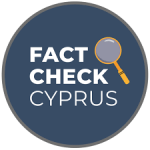Research Labs
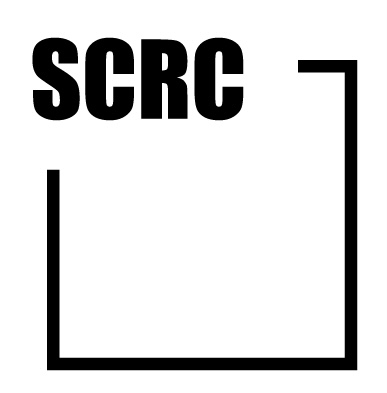
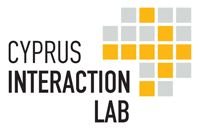 The Cyprus Interaction Lab of the Department of Multimedia and Graphic Arts of the Cyprus University of Technology studies the interaction of people with technology in various fields. The lab aims to understand and enhance users’ experience and interaction with technology. Research in the Cyprus Interaction Lab revolves around two main research themes: 1) Human Computer Interaction and Inclusive Design and 2) Instructional Technology and Social Computing. Research topics include: Human Computer Interaction (HCI); Computer Mediated Communication (CMC); Computer Supported Collaborative Learning (CSCL); Computer Supported Collaborative Work (CSCW); Inclusive Design/Accessibility; Social Aspects of Computing; Computer Games and their social and pedagogical dimensions; Technology-enhanced learning; Technology integration in K-20. The lab has a specially equipped usability laboratory designed for running user evaluations in a comfortable environment which is configured with state-of-the-art equipment.
The Cyprus Interaction Lab of the Department of Multimedia and Graphic Arts of the Cyprus University of Technology studies the interaction of people with technology in various fields. The lab aims to understand and enhance users’ experience and interaction with technology. Research in the Cyprus Interaction Lab revolves around two main research themes: 1) Human Computer Interaction and Inclusive Design and 2) Instructional Technology and Social Computing. Research topics include: Human Computer Interaction (HCI); Computer Mediated Communication (CMC); Computer Supported Collaborative Learning (CSCL); Computer Supported Collaborative Work (CSCW); Inclusive Design/Accessibility; Social Aspects of Computing; Computer Games and their social and pedagogical dimensions; Technology-enhanced learning; Technology integration in K-20. The lab has a specially equipped usability laboratory designed for running user evaluations in a comfortable environment which is configured with state-of-the-art equipment.

The Cyprus Statistical Machine Learning Laboratory(SML) was established by Dr. Soterios Chatzis as part of the Department of Electrical Engineering, Computer Engineering and Informatics at the Cyprus University of Technology. Research in the SML revolves around develop groundbraking Machine Learning methodology, and applications of high impact.
 The Data Intensive Computing Research Lab (DICL) was established by Dr. Herodotos Herodotou as part of the Department of Electrical Engineering, Computer Engineering and Informatics at the Cyprus University of Technology. Research in the DICL lab revolves around three main research themes:
The Data Intensive Computing Research Lab (DICL) was established by Dr. Herodotos Herodotou as part of the Department of Electrical Engineering, Computer Engineering and Informatics at the Cyprus University of Technology. Research in the DICL lab revolves around three main research themes:
• Large-scale data processing systems (e.g., MapReduce, Spark)
• Centralized and distributed database systems
• Cloud computing (compute, storage, and networking)
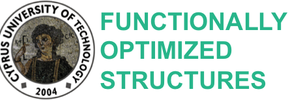 The Functionally Optimized Structures Group was founded in 2013 at the Cyprus University of Technology by Dr Stelios Yiatros, Lecturer in Structural Engineering in the Department of Civil Engineering & Geomatics. Its objective is to follow research in the area of functionally optimized structures, focussing on the structural stability, integrity and design of thin walled, functionally graded and integrated structural components. In the future we also envision to provide specialized design, modelling and experimental services for the Construction, Marine and Energy Industries.
The Functionally Optimized Structures Group was founded in 2013 at the Cyprus University of Technology by Dr Stelios Yiatros, Lecturer in Structural Engineering in the Department of Civil Engineering & Geomatics. Its objective is to follow research in the area of functionally optimized structures, focussing on the structural stability, integrity and design of thin walled, functionally graded and integrated structural components. In the future we also envision to provide specialized design, modelling and experimental services for the Construction, Marine and Energy Industries.
The Group is a partner of the CUT Sustainable Energy Lab and collaborates with other Research Groups from Imperial College London, TU Berlin and Cranfield University.
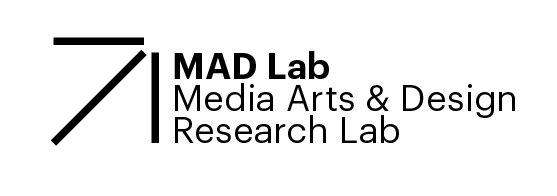
MAD Lab pivots on hybrid and interdisciplinary research in arts, design, and emerging techno-scientific culture. Promoting a playful interaction between theory, engineering, and situated practice, it comprises a multi-disciplinary team of artists, creative technologists, designers, theorists, and digital craftsmen pursuing situated research in a wide array of subareas, inter alia concerning: electronic arts, cybernetic culture, digital theatre/performance, embodiment, making/hacking methodologies, animism, media archaeology, ‘dark’ ecology, AI and bio-inspired algorithms, VR/AR, ‘alien’ phenomenology, ethnography, posthuman studies, and DIWO (Do-It-With-Others) approaches to art and education. Drawing upon such traits, ongoing projects aim the production of experimental artefacts/prototypes, theoretical critique/analysis, original exploratory artworks, bespoke software/hardware, and all sorts of hybrids thereof. MAD Research Lab is co-directed by Doros Polydorou and Marinos Koutsomichalis since March 2019.
 Microsoft Computer Games and Emerging Technologies is a research lab at the Department of Multimedia and Graphic Arts, of the Cyprus University of Technology. It has been established on June 2012 with sponsorship in the form of seed funding from Microsoft. The lab conducts basic and applied research in the areas of Visual Computing, Computer Graphics, Computer Games, Virtual & Augmented Reality and Emerging Technologies. In basic research, the lab focuses on algorithms development for real-time rendering, realistic rendering, real-time illumination, HDR imaging/tonemapping, crowd behaviour and 3D sound simulation. Applied research carried out by the lab includes serious games for educational and training purposes, innovative ways of interaction and Virtual & Augmented Reality with applications in neuroscience and psychology.
Microsoft Computer Games and Emerging Technologies is a research lab at the Department of Multimedia and Graphic Arts, of the Cyprus University of Technology. It has been established on June 2012 with sponsorship in the form of seed funding from Microsoft. The lab conducts basic and applied research in the areas of Visual Computing, Computer Graphics, Computer Games, Virtual & Augmented Reality and Emerging Technologies. In basic research, the lab focuses on algorithms development for real-time rendering, realistic rendering, real-time illumination, HDR imaging/tonemapping, crowd behaviour and 3D sound simulation. Applied research carried out by the lab includes serious games for educational and training purposes, innovative ways of interaction and Virtual & Augmented Reality with applications in neuroscience and psychology.
 The Network Systems and Science Research Laboratory performs cutting-edge research in the fields of Network Science and Complex Systems, Big Data Analytics, Social Networks, and Computer Networks.
The Network Systems and Science Research Laboratory performs cutting-edge research in the fields of Network Science and Complex Systems, Big Data Analytics, Social Networks, and Computer Networks.
The research topics investigated by the faculty members of the Lab include:
- Cybersafety and Disinformation
- Geometric approaches to the analysis of large-scale networks and big data
- Self-organized systems (e.g., social, Internet, and brain networks): properties, evolution, realistic topology generators, future/missing link prediction, community detection
- Mathematical physics of networks (Hamiltonian/Lagrangian dynamics); (iv) navigation/routing in the Internet and other complex systems
- Statistical inference methods and hyperbolic mapping of real networks
- Network performance analysis and large-scale simulation
- Software-Defined-Networks (SDN)
- Device-centric Access Control
- Transactional workload scalability with consistency-preserving replication
- Exploiting social trust to secure distributed systems
- Identity and trust management
- Authentication management
- Web privacy
- Cybersecurity

The Sustainable Energy Lab is a multi-departmental research laboratory focusing on sustainable development and on climate innovation. SEL participates in the EIT Climate-KIC RIS (Regional Innovation Scheme) Programme since 2016, focusing on Educational activities, demonstration projects and policy drafting
 The Visual Media Computing at Cyprus University of Technology (VMC@CUT) Research Lab carries out research in the area of digital image processing, computer vision and computer graphics with emphasis on the development of 2D and 3D algorithms suitable for coding, interpretation, visualization and restoration of image objects that undergo appearance variations. Currently research activities in the lab are centred on the following areas: Biometrics with emphasis on age invariant face image interpretation and age progression; 3D reconstruction, visualization and virtual restoration of cultural heritage artefacts; Non invasive multi-modal human computer interaction; Virtual Reality applications.
The Visual Media Computing at Cyprus University of Technology (VMC@CUT) Research Lab carries out research in the area of digital image processing, computer vision and computer graphics with emphasis on the development of 2D and 3D algorithms suitable for coding, interpretation, visualization and restoration of image objects that undergo appearance variations. Currently research activities in the lab are centred on the following areas: Biometrics with emphasis on age invariant face image interpretation and age progression; 3D reconstruction, visualization and virtual restoration of cultural heritage artefacts; Non invasive multi-modal human computer interaction; Virtual Reality applications.
Media Arts and Design Lab (MAD Lab): Pivoting on hybrid and interdisciplinary research in arts, design, and emerging techno – scientific culture.
Promoting a playful interaction between theory, engineering, and situated practice, it comprises a multi-disciplinary team of artists, creative technologists, designers, theorists, and digital craftsmen pursuing situated research in a wide array of subareas, inter alia concerning: electronic arts, cybernetic culture, digital theatre/performance, embodiment, making/hacking methodologies, animism, media archaeology, ‘dark’ ecology, AI and bio-inspired algorithms, VR/AR, ‘alien’ phenomenology, ethnography, posthuman studies, and DIWO (Do-It-With-Others) approaches to art and education.
Drawing upon such traits, ongoing projects aim the production of experimental artefacts/prototypes, theoretical critique/analysis, original exploratory artworks, bespoke software/hardware, and all sorts of hybrids thereof.
MAD Research Lab is co-directed by Doros Polydorou and Marinos
Koutsomichalis since March 2019.
Digital Politics Lab (Digipols) focuses on the intersection of digital technologies and politics. Its mission is to provide a research environment for pursuing cutting-edge, theory-driven empirical research for advancing the study of how digital technologies are impacting our institutions of governance and how politics shapes the development of these technologies.

